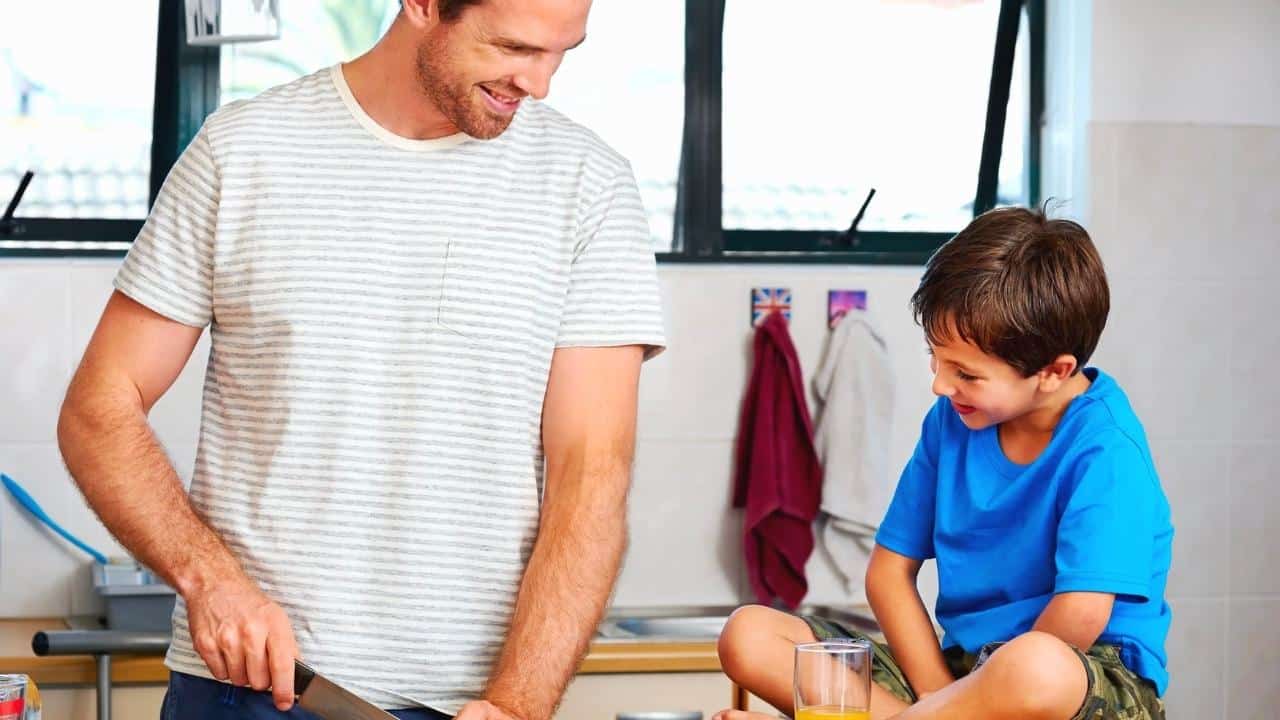Today more and more dads taking on the role of stay-at-home dad with more and more moms becoming the breadwinner in the household. So what happens when parents split up and the stay-at-home dad seeks primary custody of the children?
Most people still believe that mothers will always prevail, but that is not true.
The law isn’t as concerned about moms being the only parent who can bond with the children anymore. Dads can clearly bond with their children and if they are involved; the bond between dad and the children is just as important as a bond between the mother and the children.
Custody, Parenting Time and Illinois Allocation Judgments
With the change in the current law, we no longer refer to “child custody” cases as “custody”. Illinois now has Allocation Judgments, which allow for more flexibility with your children.
So if you are better at making the medical appointments and stay on track with your child’s physician, then under the new law, you would likely be designated as the person who handles those decisions. Perhaps the other parent wants to be in charge of school decisions.
The Allocation Judgment allows each of you to be involved and to do different “jobs” on behalf of your child. But people still want to argue for having “custody” or to have the most parenting time with the child. The parent who is staying home with the child is much more likely to obtain the right to have the majority of the parenting time if the couple breaks up.
The Burden to Prove the “Best Interest of the Child”
While the law is not intended to favor mothers over fathers, I do believe that fathers, whether stay-at-home dads or not, have a greater burden in demonstrating that they will act in their child’s best interest. I don’t remember having to “prove” that for my clients who were mothers.
But for the fathers, it seems that the court requires more of them to prove that they can act in their child’s best interest. What does that mean? And how do you, as a stay at home father, meet the necessary criteria?
Fathers Seeking “Custody” or Majority of Parenting Time
Fathers or stay-at-home dads seeking the majority of the parenting time have an easier time of accomplishing their goal under the new law. Before, someone was called the “sole parent” or the “joint parent.” Moms fought dads seeking sole custody since our society stigmatizes her for losing that title.
What is wrong with her that her ex-husband got sole custody? Is she a drug abuser? A drinker? I wonder what she did wrong?
No one ever said that about the father when the mother was the sole custodian. It was expected of the mom to be the parental custodian and when she wasn’t, there had to be a sinister reason why she wasn’t. Because of that stigma, mothers fought like mad to be the sole custodian.
Now, no one is the sole parent or the joint parent. But the parent having more of the parenting time gets the child support, and so the war of who gets the kids more rages on.
How to Be the Parent with the Majority of Parenting Time
As a father, what can you do to ensure that you are the parent with the most parenting time? First, you should be involved in your child’s life. That sounds simplistic since you are the stay at home parent, but are you the parent taking your child to the doctor?
Do you attend the teacher-parent conferences at school? Do you interact with your child’s teacher regarding your child’s progress in school? The list can go on and on as to what it means to be involved in your child’s life, but the main criteria will be just how much you actually know about your child.
Ability to Facilitate a Relationship Between Your Child and the Other Parent
One overlooked factor, however, is how the level of dad’s involvement shuts out or minimizes the other parent’s involvement. When you have the majority of the parenting time, you are responsible for keeping the other parent informed, and if it is demonstrated that you have an inability to do that, you will quickly be labeled as a parent who cannot facilitate a relationship between the child and the other parent.
What exactly does it mean to “facilitate a relationship”?
Facilitating a relationship means that you can include the other parent in your child’s life. You aren’t threatened or feel diminished as a parent by sharing your child’s gymnastics schedule with the other parent. Or by reminding the other parent about an event at your child’s school. It means being the bigger person for the betterment of your child.
- Does your child have a picture of the other parent in his or her room?
- How about a photo album of the child’s family which includes pictures of both parents?
- Are you secure enough to allow your child to talk regularly on the phone with the other parent, or do you lurk in the background listening to their conversation?
If you are going to have the most parenting time with your child, you have to be able to act in that child’s best interest. And, typically, that includes involving the other parent in your child’s life.
Advice to the Stay-At-Home Dad Seeking Primary Responsibility of the Children
Moms will oftentimes tell me that their children aren’t really loved by their father or that their children are better off without him. For sure, there are instances when that is true.
But when I see fathers in court fighting to see their children, I assume that they really do want to see their kids and that they aren’t in court fighting just to give the mother grief. They likely really want to see their kids. When you are the father seeking primary responsibility for your child, don’t be the parent that tries to banish the other parent.
Whether you believe it or not, your child will see your ex’s shortcomings and there is no need to point them out. Kids get it that mom has to work and might not be at their game, so your comment of “She cares more about her job then coming to see you play,” is out of line. And hurtful.
Be the parent that isn’t trying to alienate the kids from their mother and do all you can to include the mom in the child’s life.
Find Ways to Support Your Child’s Relationship with the Other Parent
Since you are the stay-at-home dad, try to figure out ways to make it easier for the other parent to see the child. If the working parent has a schedule that fluctuates, can you allow a change in the schedule to allow for extra parenting time?
Can you buy tickets to a show that your child wants to attend and give those tickets to the other parent? Think about what you can do to be nice. Most people think it is counter-intuitive to try and help the other parent or to do something nice for the other parent, but I think they are wrong.
Gestures of Kindness Go a Long Way
Your gesture of kindness does a few important things.
- It shows your child that you are forgiving, thoughtful, and generous.
- It shows your ex that you are forgiving, thoughtful and generous.
- And, it shows the Court that you are forgiving, thoughtful and generous.
It is a win/win for both of you and by taking the high road. You will feel better and “get points” with any custody evaluator and/or judge since you are able to demonstrate that you can act in your child’s best interest and facilitate a relationship, which is critical in child custody cases.
If you handle the situation right, your ex might even repay you with an act of kindness in the future.
Preparing Your Case for a Custody Evaluator or Judge
If despite all your efforts to end your case amicably fail, then you have to prepare to take your case to the custody evaluator or the judge. Think of witnesses who can support your position that you are the primary caretaker of the child. Highlight things you’ve taught your child and record milestones.
Remember, this case is about you and what you bring to your child’s life.
You don’t need to spend any time capitalizing on the things the other parent does wrong. I’m a firm believer that you will obtain the majority of parenting time with your child by being positive, by building up the other parent and spending most of your court time demonstrating just what a great dad you are.















